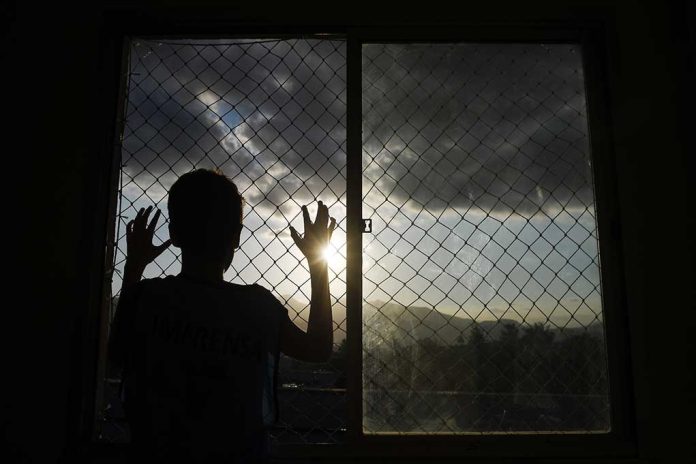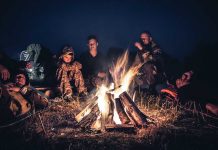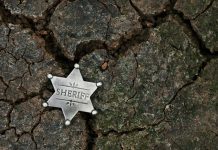(SurvivalDaily.com) – It’s no surprise that bugging-in can have a tactical advantage over bugging out, especially if you don’t have a certain location in mind. Sheltering in place may not seem as safe (or, if running a drill, as fun), either. But there are distinct tactical advantages to bugging in if you know how to do it right. Here’s how to make the most of a survival situation just by staying right where you are.
Covering The Basics
When sheltering in place, basic needs come first: food, water, hygiene, and first aid are tantamount. Knowing what you need and how to stock up will help tremendously. Other things, like entertainment, are not as important, but should still be sought out before a crisis occurs. Shelter should already be covered in the case of staying where you are.
Water
Water is probably the most essential item on this list. Not only is it needed for hydration and survival purposes, but it’s also needed for sanitation. Try to stock up as much water as you can. You can also add a preservative to increase shelf life. This is especially important if you rely on water from urban municipalities, as in a grid-down situation, the H2O might cease to flow.
Try to keep ingestion to between one-half to one full gallon of water per person per day. This will stretch your supply. You can store cases of water in dark, dry, and cool places such as under a bed or in a closet. In a pinch, you can use the water from inside pipes in your house, your water heater, or even the back of your toilet. Be sure to purify any water before consuming (and yes, you should invest in a purifier, too).
First Aid
First aid is especially important. If you end up with an injury, you want to be able to take care of it to avoid infection. This needs to be more complex than the average homeowner has in their medicine cabinet.
Try to include:
- Gauze
- Disinfectant
- Gloves
- Pain relievers
- A stitch kit
- Skin glue
- A splint or two
- Medical tape
- Antidiarrheals
- Antibiotic salve
- Burn cream
- Allergy medications
It’s also wise to stock up on meds. This can be done with prescription medication, too. If you pick up a refill a day or two before it’s due, save the extra “overlap” in your bug-in kit. Or, ask your doctor about an extra emergency fill to keep on hand.
Food
Food is obviously important as well — although you might be surprised to find the body can last up to three weeks without it. You don’t have to stock up on anything in particular; get food your family enjoys. Just be sure to look for food with a long shelf life, such as canned goods.
If there is a power outage, consume perishable foods first. This will cut back on waste and prevent you from inadvertently ingesting bad food later on.
Of course, you’ll need a way to cook the food as well (unless you happen to be into steak tartare, which isn’t really safe in a crisis). You can buy a little camp stove or just have a backyard fire.
You can even use a leftover tin can to make a stove, how cool is that?
Junk food isn’t bad to have on hand, either. Most products that fall under this category have a long shelf life and help boost morale. Dehydrated foods really are not that bad either, plus they cook with relative ease: you often only need water.
Hygiene/Sanitation
Hygiene is important to help prevent illness and fight off bacteria. Be sure to stock up on soap and other hygiene products like shampoo and toothpaste. The good news is that most homes already have a small stockpile of these products. Don’t underestimate the value of having enough toilet paper, either… being able to use the restroom cleanly is an underrated tool for maintaining sanity and health.
One thing to consider is how you’ll dispose of waste (human and otherwise). This is as simple as a 5-gallon bucket with a bag in it to serve as a toilet. Baking soda or powder laundry detergent will combat the smell. And most importantly, keep refuse piles, buckets, or even outhouses far from foods and water sources to avoid contamination.
Tools
Tools can help if and when the power goes out. In fact, they can be a lifesaver when something unexpected happens. Be sure to have plenty of alternative light sources on hand, including candles, and flashlights. Crank-powered flashlights are great for children as they can’t run down the battery and make the light useless. Stocking up on batteries is also wise… it’s hard to use a tool like a flashlight without them!
Other tools, such as chainsaws, axes, knives, hatchets, and even multitools are also helpful. Just don’t forget to stock up if you need fuel for them too.
Communication
Communication is key, especially in a crisis. It’s likely that phones, tablets, and computers will become useless. Invest in a crank-powered or solar-powered radio so you can still listen to the broadcasting of news and updates. Walkie talkies are also a good idea to help communicate if a member of the family has to go out for supplies.
Entertainment
Entertainment may not be an essential part of survival, but it sure does help make tough times easier to cope with. Simple board games, coloring books, art supplies, and puzzles will help children stay busy (and more importantly, out of your way!). Books are also a great escape, as can a tablet with offline games (assuming you retain access to power during the crisis).
Also, don’t underestimate the value of arts, crafting, and other family activities that get everyone focused and involved. They also help boost morale and let everyone offload a little bit of stress. In colder climates where there is little to no access to heat, telling stories under blankets is a great way to stay warm.
Security
Staying put and sheltering in place also offers you a sense of security. You can fortify your home much easier than you can a tent in the middle of the woods. If you’re very concerned about safety look into a security system, panic rooms, or even a lockdown type of security. You can board up windows, or even have metal shields that fold out to put on your windows for increased security.
Having firearms is also a good idea (if it is legal to do so in your area) — and you should know how to use them safely to protect your family, too. Just having a gun won’t help if you aren’t trained in how to use it without risking your own life. Seek lessons and guidance before an issue occurs, and practice regularly when you can.
Be sure to train under different circumstances and conditions. Learn your gun from the inside out this way if something like a jam occurs you can quickly tend to it and fix it.
In Conclusion
Bugging out should, generally, be a last resort. So many preppers know first-hand that it’s often easier to fortify and defend than to run. But don’t forget that while sheltering in place may be the best option, there are situations that call for you to bug out. It doesn’t matter what the threat is… there is no surefire way to be fully prepared.
Are you prepared to bug in should a disaster strike your area? Did this article give you ideas on how to better prepare? Reply to your email and let us know, we would love to hear from you!
Copyright 2021, SurvivalDaily.com

















